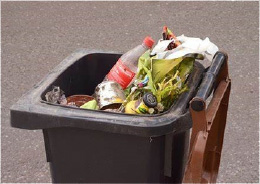Homepage " Organic waste garbage can and contaminants

The sticky contaminants in the organic waste garbage can (plastic, residual waste) can only be partially sorted out and can be found shredded in the organic waste garbage can compost, up to 895 plastic particles less than 5mm per kilogram of dry weight.
(Study by Prof. Christian Laforsch, University of Bayreuth)
Read article here: Microplastics in the organic waste garbage can - no way! - THE MIRROR
By Christoph Seidler, 05.04.2018, 09.39 a.m.
SUPERCOMP
is a trademark of
GREEN-PRACTICE-SYSTEMS e.U.
Rechbauerstraße 23
8010 Graz
Austria
Customer opinions and ratings

Information on
Payment & shipping information
Payment options




Secure payment processing is handled by our payment service provider Mollie.com in the Netherlands.
powered by MONOBUNT digital agency